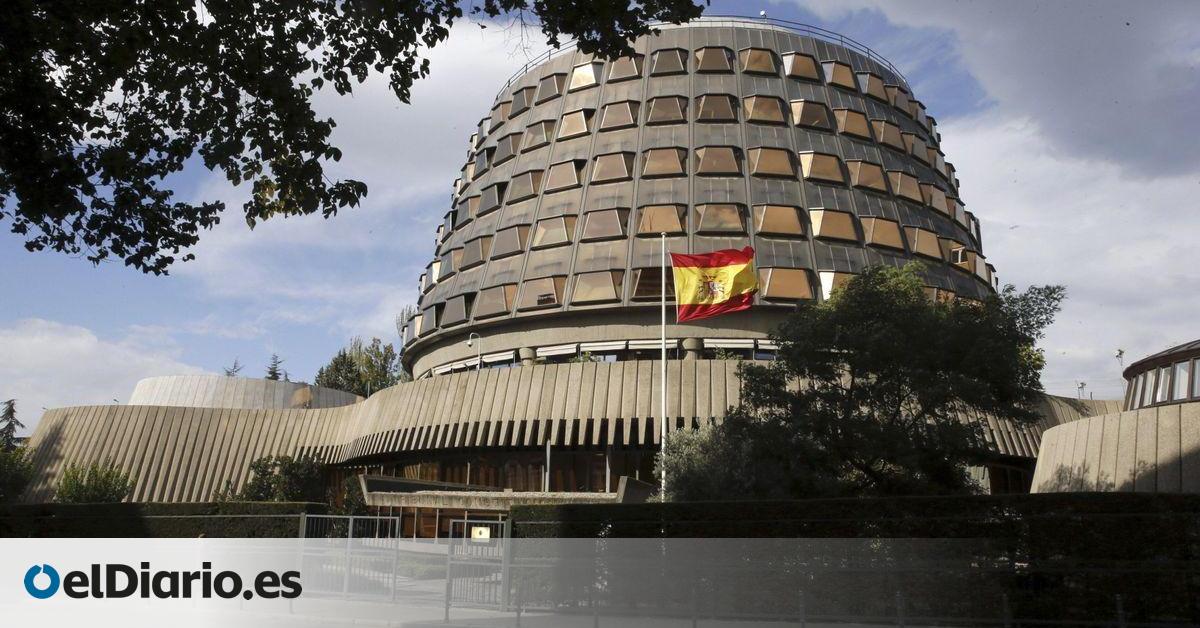
The Constitutional Court guarantees the amnesty law. The Plenary of the Court of Guarantees, after several days of deliberations, has rejected the appeal presented by the Popular Party against the Standard of Forgiveness of the Process with the six favorable votes of the progressive sector and four against the conservatives. A now approved draft that put small stuck to the amnesty, especially that forgave consummated crimes after November 2023, but that gives green light to the bulk of the law in understanding that it is compatible with the Constitution, that its parliamentary process was correct and that it is not a general pardon.
The court launched the deliberations on Monday and began to discuss the appeal of the PP after refusing to send the case to Europe through a preliminary ruling. The vote has given the green light to the law, which to date has been applied to more than 300 people involved in judicial causes related to the procés, and has evidenced the deep division between the progressive majority that has taken the sentence against the conservative minority that has opposed the draft of Immaculate Montalbán.
The sentence that will be public in the next few days puts three pegas of little importance to the norm. That forgive the crimes related to the procés consummated after November 2023, which according to the Constitutional would allow “to continue developing, without suffering any sanction, a criminal behavior already initiated.” Also that the amnesty expands the police involved in referendum disturbances or the 2019 demonstrations, but not individuals or other public employees. “For example, to the director of a school that could perform an illicit act exceeding on the occasion of its refusal to the use of the teaching center that directs in a secessionist consultation,” said the presentation with an example that has not occurred in court.
The third and final estimate of the PP resource forces to give audience to all parties involved in the accounting causes processed in the Court of Accounts around the process. The rest, a presentation of almost 200 folios raised by the Immaculate Vice President Montalbán, endorses the lace of this rule with the Constitution: it does not generate inequality, it is not arbitrary, it does not invade or replace the work of the judges and is not a prohibited general pardon in Spain.
The four conservative magistrates of the Plenary have announced particular votes contrary to the majority sentence. One of them, Ricardo Enriquez, understands that the Spanish Constitution does not allow to create an amnesty. Also that in this case the norm is “arbitrary” because its “true purpose” was to “obtain the support of the seven Juns deputies in the investiture session of the president of the Government.”
An amnesty with “objective and reasonable justification”
Amnesty’s law, says the presentation approved by the progressive majority of the Constitutional, is not an attributing decision but has an “objective and reasonable justification.” “The legislator’s purpose of favoring reconciliation and, with it, that the underlying political conflict is chanted through the dialogue cannot be reputed illegitimate,” adds that draft that refused to enter the political considerations of the PP on whether the amnesty was the currency of change so that Juns would support the investiture of Pedro Sánchez in 2023: “The motives or intentions of those who promote the approval Organic Law is a matter of the legal. ”
Since their entry into force, the courts and courts that have sentenced or investigated cases related to the procés have amnestized more than 300 people. Especially protesters and police involved in altercations and disturbances in the 1-O and demonstrations against the judgment of the process but also to public charges prosecuted and condemned for promoting the 2017 referendum using public resources.
This constitutional judgment supports the legality of the amnesty but does not determine the application that judges have to make in cases of greater political relevance: the embezzlement attributed to Oriol Junqueras or Carles Puigdemont. In the case of the ERC leader, his sentence of disqualification for that crime – the prison was pardoned – keeps him away from any public office until 2031. In the case of the Catalan express, the imputation that weighs on him keeps him in search and capture by Judge Pablo Llarena.
So far the Supreme Court, both Llarena and the Criminal Chamber, has refused to amnesty this crime and independence political leaders will have to wait for the Constitutional to resolve each of its individual resources.
Source: www.eldiario.es

